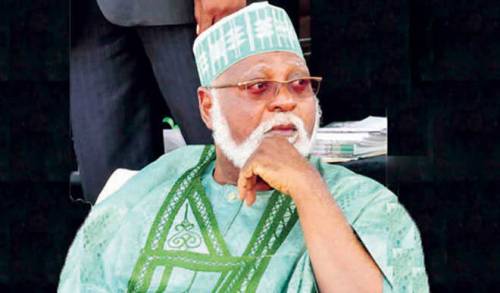[ad_1]

Generally, the Constitution imposes such a requirement. But courts have said it doesn’t apply if the person consents, or the officer faces “exigent circumstances” that require immediate action. One of those emergencies, the Supreme Court has recognized, is when an officer is in “hot pursuit of a fleeing felon” seeking to evade the police.
But Lange was not suspected of a felony — he drew Officer Aaron Weikert’s attention for playing his radio too loud on a warm California day, and occasionally beeping his horn. It was only after Weikert confronted Lange in his Sonoma garage that he had reason to suspect the driver had been drinking.
A test showed Lange had three times the legal limit of alcohol in his blood, court documents say. He lost his license and pleaded no contest to driving under the influence. Lange appealed, saying what Weikert learned in the garage should not be allowed into evidence. But a California court sided with the police, saying there was no difference in pursuing someone suspected of a felony, and someone suspected of a misdemeanor.
Stanford University law professor Jeffrey L. Fisher, representing Lange, said extending the “hot pursuit” exception to include misdemeanors would vastly increase the power of police to intrude on someone’s home and property, which the Constitution holds “sacrosanct.”
When Justice Stephen G. Breyer lamented how difficult it can be, because of different state laws, to easily classify behavior as a felony or misdemeanor, Fisher agreed. He said it was unnecessary for the court to come up with a bright-line rule.
Instead, he said, such decisions must come case by case. Officers deserve “substantial discretion to analyze the situation, as the court has always said, but do require a showing of actual exigent circumstances,” Fisher said.
Justice Samuel A. Alito Jr. said a video of the encounter made him doubt Lange even knew he was being pursued. Weikert had turned on his lights about 100 feet from Lange’s driveway.
“If we hold that ‘hot pursuit’ requires a hot pursuit, won’t we go a long way toward preventing warrantless arrests for minor infractions?” Alito asked.
Chief Justice John G. Roberts Jr., though, worried about hamstringing the police. It can be dangerous for an officer when a suspect retreats to his home, where he could arm himself or destroy evidence. Perhaps police should be even more worried when someone flees when police confront him over a minor infraction,…
[ad_2]
Source link


